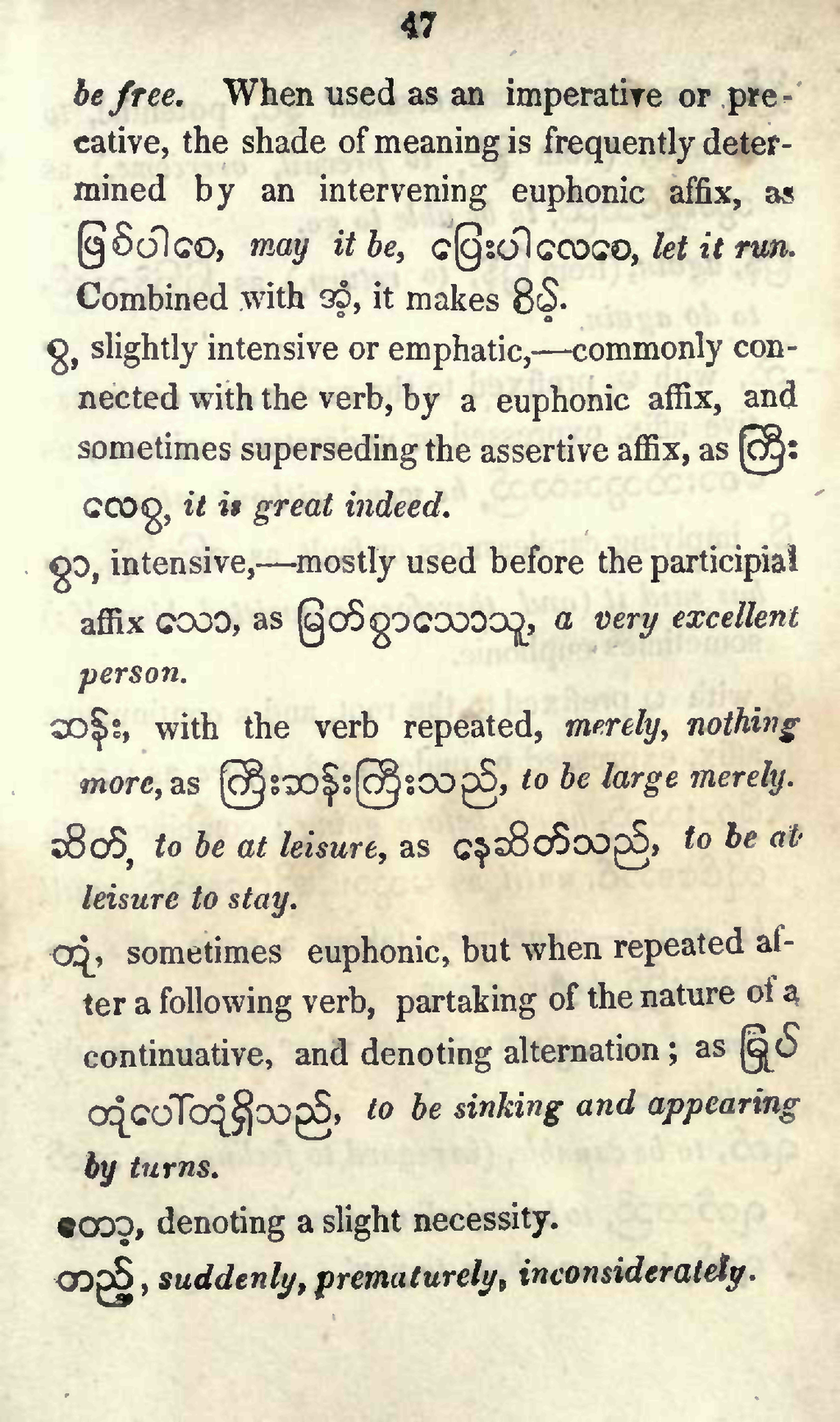be free. When used as an imperative or precative, the shade of meaning is frequently determined by an intervening euphonic affix, as ဖြစ်ပါစေ, may it be, ပြေးပါလေစေ, let it run. Combined with အံ့, it makes စိမ့်.
စွ, slightly intensive or emphatic,—commonly connected with the verb, by a euphonic affix, and sometimes superseding the assertive affix, as ကြီးလေစွ, it is great indeed.
စွာ, intensive,—mostly used before the participial affix သော, as မြတ်စွာစောသူ, a very excellent person.
ဆန်း, with the verb repeated, merely, nothing more, as ကြီးဆန်းကြီးသည်, to be large merely.
ဆိတ်, to be at leisure, as နေဆိတ်သည်, to be at leisure to stay.[1]
တုံ, sometimes euphonic, but when repeated after a following verb, partaking of the nature of a continuative, and denoting alternation; as မြုပ်တုံပေါ်တုံရှိသည်, to be sinking and appearing by turns.
တော့, denoting a slight necessity.
တည့်, suddenly, prematurely, inconsiderately.
- ↑ This paragraph has been replaced on p. 76 by: “ဆိတ်, (from ဆိတ်, to be still; quiet,) to be quiet, unmoved, though the occasion calls for exertion, as နေဆိတ်သည်, to remain unmoved.”

